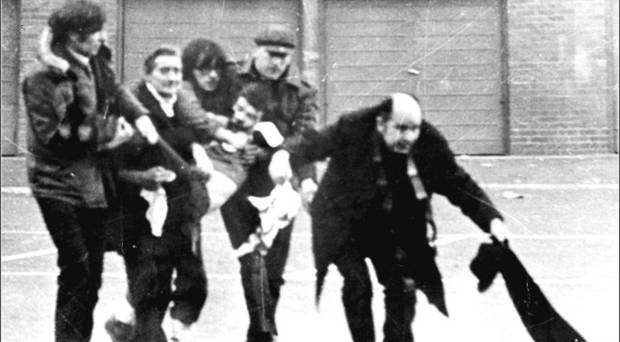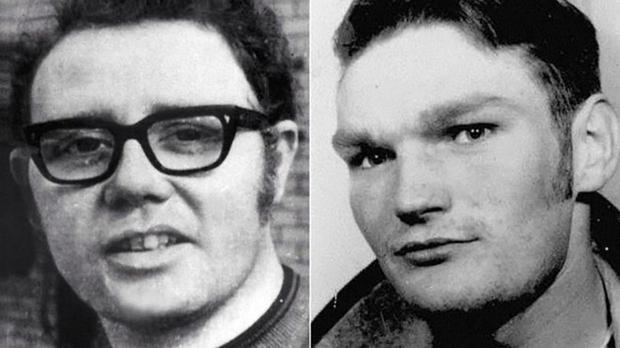
Bishop Edward Daly carryinig a white handkerchief on Bloody Sunday in January 1972
The Public Prosecution Service was directed by the High Court in March to look again at whether Soldier F should face a murder trial.
It sought permission to appeal that decision to the Supreme Court.
That bid was rejected in the High Court in Belfast on Tuesday.
However, a similar legal bid by families of other Bloody Sunday victims seeking the prosecution of three more soldiers was also turned down by the same court.
The families wanted permission to appeal to the Supreme Court over a decision that the soldiers would not go to trial over six deaths.
Lady Chief Justice Dame Siobhan Keegan identified no points of law of general public importance requiring consideration by the Supreme Court.
Thirteen people were shot dead and at least 15 others injured during a civil rights demonstration in Derry in January 1972, a day that became known as Bloody Sunday. A 14th person later died of their injuries.
In 2010, the Saville Inquiry into events on Bloody Sunday established the innocence of all of those who died.
In 2019 the PPS announced that one former serviceman – Soldier F – would face murder and attempted murder charges over the killing of James Wray and William McKinney, as well as the wounding of four others.
But the PPS decided not to bring charges against any other soldiers.
Several victims’ families challenged the decision not to prosecute five of the former members of the Parachute Regiment.
Then, in July 2021, the PPS announced Soldier F would no longer face trial over two murder charges plus at least five counts of attempted murder.
The case against him was reviewed following the collapse of separate criminal proceedings against two other military veterans for Troubles-era offences.
Based on an assessment of the admissibility of evidence from the time, it was concluded that the test for prosecution was no longer met.

Soldier F was charged with the murder of William McKinney (left) and James Wray on Bloody Sunday
They also dismissed separate challenges to the PPS deciding against prosecuting other retired servicemen.
The High Court has now refused the victims’ and the PPS’s bids to have those decisions reviewed by the Supreme Court.
Dame Siobhan stressed that the cases were decided on the facts, specific circumstances and the test for prosecution.
Refusing the applications, she said: “The public interest in the incidents giving rise to the litigation does not render the legal issues involved points of law of general public importance or such points which ought to be considered by the Supreme Court.”
Tags:




